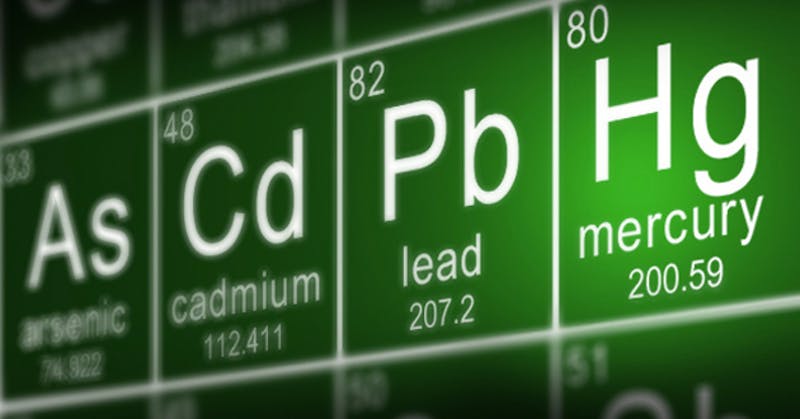EFSA Guidance on Arsenic Contamination in Rice
The European Food Safety Authority (EFSA) has provided extensive guidance on the presence of arsenic contamination in rice. This regulation is critical for ensuring food safety, particularly as certain forms of arsenic are known to be harmful to human health. EFSA's recommendations aim at setting thresholds and limits that protect public health from adverse effects due to chronic exposure.
According to EFSA, the main concern regarding arsenic in rice stems from the element’s toxicity, which can lead to various health issues including cancer risks if consumed over prolonged periods. The most concerning forms of arsenic are inorganic arsenic (iAs), particularly its tri-and pentavalent compounds (iAs(III) and iAs(V)), as opposed to organic arsenic species like dimethylarsinic acid (DMA). DMA, while still a form of arsenic, is less toxic compared to iAs.
The EFSA guidance primarily focuses on the presence of inorganic arsenic species because they are more readily absorbed by humans through the gastrointestinal tract and accumulate in tissues. The EFSA recommendations emphasize the need for strict monitoring and control measures to minimize consumer exposure to these harmful elements, especially in staple foods like rice which are consumed daily by a large portion of the population.
Understanding this guidance is crucial not only for food safety but also for regulatory compliance. Compliance officers and quality managers within organizations dealing with food production need to ensure that their supply chains meet EFSA's recommended thresholds. This involves rigorous testing, traceability, and risk management strategies at every stage from sourcing raw materials to final product distribution.
For R&D engineers in the sector, this guidance offers a roadmap for developing safer rice products through advanced purification techniques or breeding programs focused on reducing arsenic content naturally. Similarly, procurement teams must be aware of these standards when selecting suppliers and ensuring that all incoming batches comply with EFSA’s recommendations to maintain product safety.
Compliance with EFSA's guidelines also means adopting appropriate analytical methods tailored for detecting trace amounts of arsenic in rice samples. Commonly used techniques include atomic absorption spectrometry (AAS), inductively coupled plasma mass spectrometry (ICP-MS), and liquid chromatography coupled with tandem mass spectrometry (LC-MS/MS). These instruments provide precise results necessary to meet the stringent limits set by EFSA.
Given that rice consumption varies significantly across different regions, it is essential for laboratories specializing in food testing to stay updated on these standards. By adhering to EFSA’s guidance, laboratories can help ensure accurate and reliable test outcomes which contribute directly to maintaining public health safety.
In summary, following EFSA's recommendations on arsenic contamination in rice requires a multi-faceted approach encompassing stringent analytical procedures, robust quality control measures, and continuous monitoring of supply chains. This ensures that the food products reaching consumers comply with international standards and safeguard against potential health hazards associated with high levels of arsenic.
Eurolab Advantages
At Eurolab, our expertise in heavy metals & toxic element testing aligns perfectly with EFSA's guidance on arsenic contamination in rice. With state-of-the-art facilities and a team of highly skilled professionals, we offer comprehensive services that cater specifically to this regulatory requirement.
- Accurate Testing: Our laboratories are equipped with advanced instruments such as ICP-MS and LC-MS/MS capable of detecting even trace amounts of arsenic species. This precision ensures compliance with EFSA’s strict limits.
- Rigorous Quality Assurance: We adhere to international standards including ISO 17025 for our testing methodologies, ensuring reliability and accuracy in every result we produce.
- Comprehensive Reporting: Our reports not only provide numerical data but also interpret the findings within the context of EFSA’s recommendations, helping clients understand their compliance status easily.
Our team includes experts who stay abreast of all relevant regulations and guidelines, ensuring that our clients remain compliant with current standards. Additionally, we offer training sessions and consultation services to help organizations implement effective strategies for managing arsenic in their rice products.
Customer Impact and Satisfaction
- Enhanced Reputation: By complying with EFSA's guidelines, our customers can build a reputation for delivering safe, high-quality products. This is especially important in the global market where trust is paramount.
- Increased Customer Confidence: Ensuring that rice products meet stringent standards reassures consumers about the safety of their food choices.
The rigorous testing and compliance measures implemented by Eurolab contribute to maintaining a strong brand image among stakeholders. Our clients benefit from reduced regulatory risks, increased market access, and enhanced consumer loyalty. These factors collectively drive customer satisfaction and business growth.
Environmental and Sustainability Contributions
EuroLab’s commitment to EFSA’s recommendations on arsenic contamination in rice extends beyond immediate compliance; it also contributes positively to environmental sustainability efforts. By minimizing the presence of harmful elements like iAs in food products, we help reduce potential pollution risks downstream.
- Reduced Pollution Risks: Lowering levels of toxic metals in agricultural produce can prevent further contamination of soil and water bodies, promoting healthier ecosystems.
- Sustainable Agriculture Practices: Our services encourage sustainable farming practices that aim at reducing the introduction of harmful substances into the environment during cultivation processes.
In conclusion, Eurolab’s dedication to EFSA’s guidance on arsenic in rice reflects a broader commitment towards environmental stewardship. By supporting these efforts, we contribute to creating safer food environments while fostering long-term sustainability goals within the industry.





